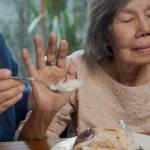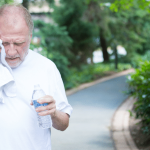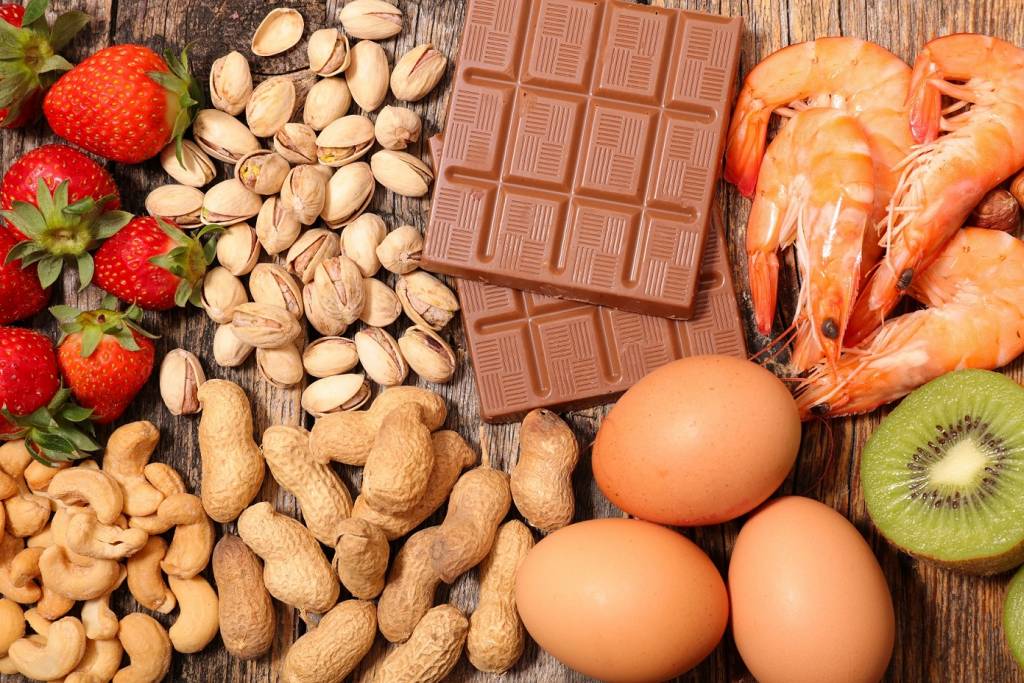
As people age, it is important that seniors and their caretakers and families are aware of foods they should and should not eat. This will ensure that their senior loved ones will live healthy and active lives. A healthy senior diet can help manage conditions such as high blood pressure, high cholesterol, and type 2 diabetes.
During the aging process, nutritional requirements will change, and these requirements also differ for men and women. After turning 60 years old, seniors may not be as active as they were previously, so they will usually consume less calories. That means they will have a reduced appetite, so more nutrients need to be included in their smaller meals including vitamins, minerals, protein, and fiber.
In this guide, we discuss the main foods that seniors should avoid eating for better health.
Food Seniors Should Not Eat
Undercooked Eggs
Seniors should never eat raw or undercooked eggs as they may contain harmful bacteria, E. coli and other pathogens that can make them ill. Eggs should always be cooked thoroughly before eating or they may cause illness.
Undercooked Meat
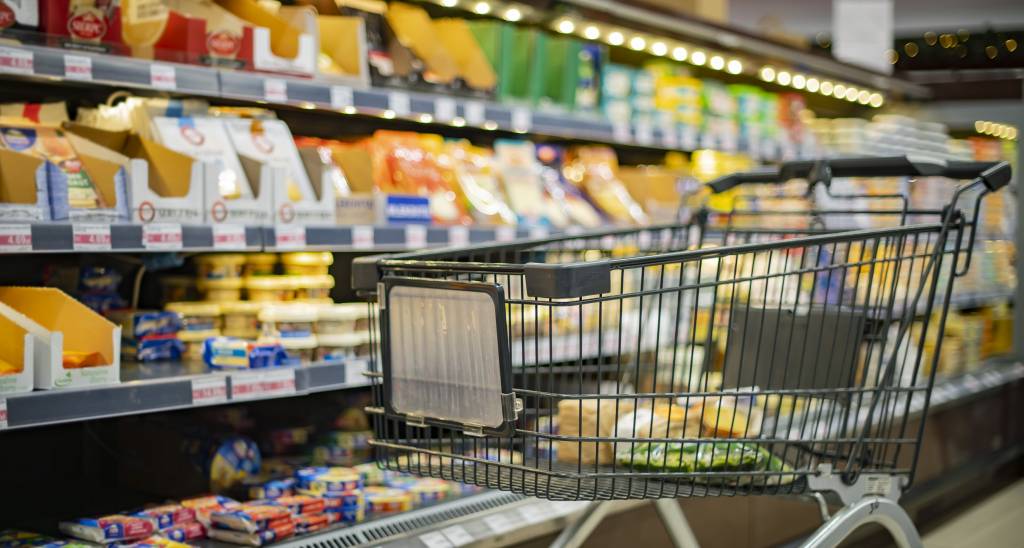 Undercooked meat can be highly dangerous for older adults. Beef, lamb, and chicken contain bacteria, and if they are undercooked, seniors can get sick from eating them. Always follow proper guidelines when preparing meals with meats. Thermometers should always be used when cooking as it may be difficult to tell if a food is cooked just by looking at it.
Undercooked meat can be highly dangerous for older adults. Beef, lamb, and chicken contain bacteria, and if they are undercooked, seniors can get sick from eating them. Always follow proper guidelines when preparing meals with meats. Thermometers should always be used when cooking as it may be difficult to tell if a food is cooked just by looking at it.
Processed Meat
Processed meat causes inflammation in the body and therefore seniors should not consume it daily. Instead, processed meat should be a treat, consumed on a weekly or monthly basis, as long as most of the senior’s diet consists of grains, vegetables, fruit, and fresh meat.
Raw Fish and Shellfish
Although fish is a great way to eat protein, seniors and their caretakers should be careful with raw fish and shellfish. Parasites present in fish can cause food poisoning in seniors. Therefore, raw fish or shellfish should be avoided altogether.
Raw Milk
Unpasteurized milk can have harmful pathogens such as Salmonella, E. coli, Listeria, and Campylobacter which can cause serious illness and even death. It is true that pasteurization may get rid of these risks, however it does not remove hormones and pesticides that may still be present in milk. The best course of action is to buy organic whole milk and remember that other dairy products should not be consumed after the age of 60.
Soft Cheeses
Although they are a great source of protein, soft cheeses can cause an issue for seniors. For example, brie and camembert have traces of listeria. Eating just one ounce of this type of cheese per day may increase their risk of getting sick. To avoid food poisoning in seniors, they should avoid eating soft cheese altogether.
Pastries
Pastries are high in fat, calories, and sugar and should not be consumed by seniors. This type of food will not keep them satiated, but instead it can increase their appetite and cravings of carbs and sweets which can contribute to weight gain and other health problems.
Fried Foods
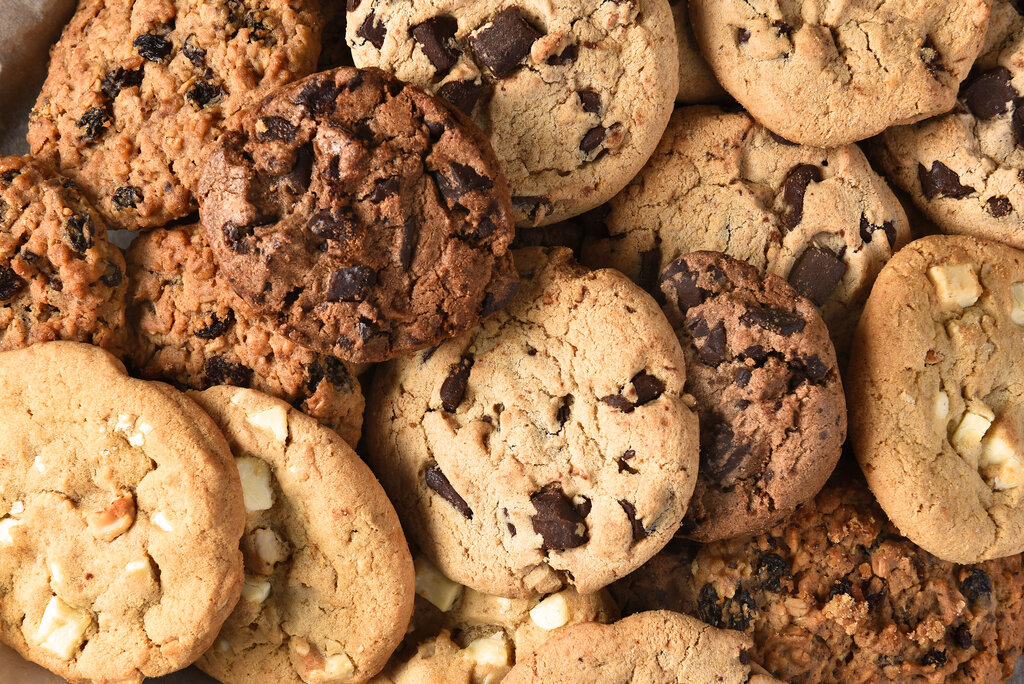 If seniors consume fried foods, they may have an increased risk of becoming obese and developing heart disease as these foods are high in calories. This food should be avoided altogether or consumed only in small amounts.
If seniors consume fried foods, they may have an increased risk of becoming obese and developing heart disease as these foods are high in calories. This food should be avoided altogether or consumed only in small amounts.
Candy
A diet high in sugar may cause seniors to have high blood pressure, liver disease, and can even make them prone to increased risk of certain types of cancer and dementia. Traditional sugar also increases the risk of obesity and insulin resistance in seniors which is key in developing type 2 diabetes.
Pop
Seniors should avoid drinking pop as it may cause obesity and metabolic syndrome which increases the risk of heart disease and even diabetes. To stay hydrated, seniors should consume water instead.
Grapefruit
Seniors and their caretakers should be careful in serving grapefruit to seniors, as it may interfere with some prescription drugs. For example, it can interfere with cinacalcet, which is a drug used to treat high blood calcium. Seniors should always consult their doctor before consuming grapefruit to ensure it does not negatively interact with their prescription medications.
Key Facts About Healthy Eating for Seniors
- Aging Men and Women have different nutritional needs.
- The best diet for seniors is a balanced diet that includes food from all five food groups including grains and cereals, vegetables, protein, dairy, and fruit.
- Those aged over 60 need more of specific nutrients than younger people.
- If a senior is not as active as they were previously, they may need to consume fewer calories,
- If a senior is eating less, they need to make sure that their diet includes a high concentration of nutrients.
- Seniors need to maintain a healthy weight as it will help them be more active and preserve their bone health and muscle strength.
- Seniors should keep hydrated by consuming water.
- Before making changes to a diet or exercise regime, seniors or their caretakers should consult their doctor.
Elderly Care Services
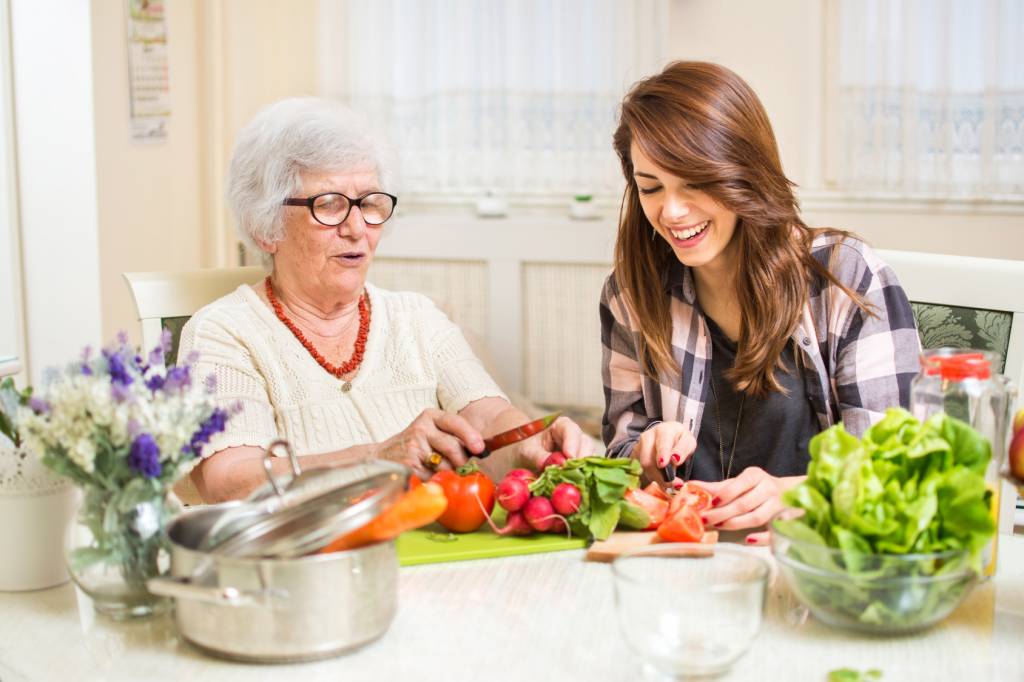 When individuals age, many daily tasks can seem more difficult than when they were younger, including eat meals. While is common to have such struggles, it is best to get help from professional senior care services agency.
When individuals age, many daily tasks can seem more difficult than when they were younger, including eat meals. While is common to have such struggles, it is best to get help from professional senior care services agency.
Elderly care services can provide help with daily routines, light housekeeping, and companionship services.
Schedule a Free Consultation
If you or your loved one need help with senior home care, make sure to reach out to our professionals at Assisting Hands Home Care. You can also visit our website to learn more information about the senior home care services we offer.
For more information regarding our elderly care services in the Schaumburg or Park Ridge, IL area, contact Assisting Hands Home Care at (847) 796-6685.
Related Blog

